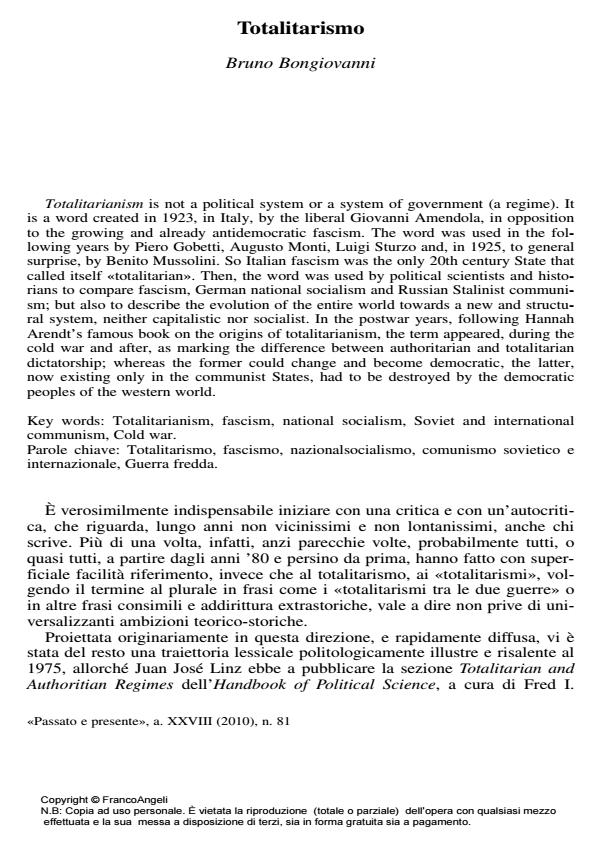Totalitarianism
Journal title PASSATO E PRESENTE
Author/s Bruno Bongiovanni
Publishing Year 2010 Issue 2010/81
Language Italian Pages 10 P. 121-130 File size 279 KB
DOI 10.3280/PASS2010-081007
DOI is like a bar code for intellectual property: to have more infomation
click here
Below, you can see the article first page
If you want to buy this article in PDF format, you can do it, following the instructions to buy download credits

FrancoAngeli is member of Publishers International Linking Association, Inc (PILA), a not-for-profit association which run the CrossRef service enabling links to and from online scholarly content.
Totalitarianism is not a political system or a system of government (a regime). It is a word created in 1923, in Italy, by the liberal Giovanni Amendola, in opposition to the growing and already antidemocratic fascism. The word was used in the following years by Piero Gobetti, Augusto Monti, Luigi Sturzo and, in 1925, to general surprise, by Benito Mussolini. So Italian fascism was the only 20th century State that called itself «totalitarian». Then, the word was used by political scientists and historians to compare fascism, German national socialism and Russian Stalinist communism; but also to describe the evolution of the entire world towards a new and structural system, neither capitalistic nor socialist. In the postwar years, following Hannah Arendt’s famous book on the origins of totalitarianism, the term appeared, during the cold war and after, as marking the difference between authoritarian and totalitarian dictatorship; whereas the former could change and become democratic, the latter, now existing only in the communist States, had to be destroyed by the democratic peoples of the western world.
Keywords: Totalitarianism, fascism, national socialism, Soviet and international communism, Cold war
Bruno Bongiovanni, Totalitarismo in "PASSATO E PRESENTE" 81/2010, pp 121-130, DOI: 10.3280/PASS2010-081007